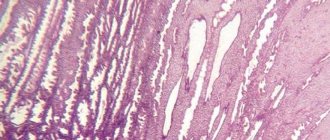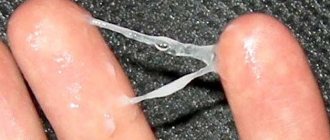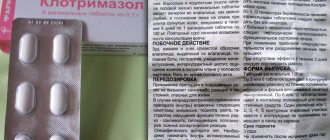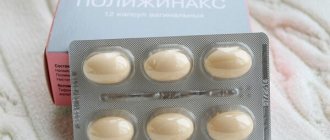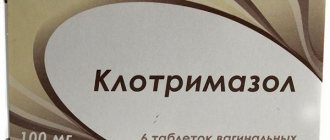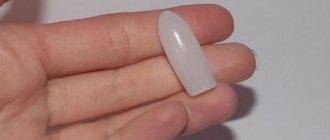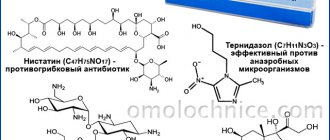Itching and burning in the urethra and vagina in women can be symptoms of bladder inflammation and fungal infection.
The manifestations of these diseases can be very similar, and in some cases doctors diagnose their patients with cystitis and thrush at the same time, because one of the diseases often develops against the background of the other.
To cure two interrelated illnesses, it is necessary to use an integrated approach; the treatment regimen for such diagnoses should only be selected by an experienced doctor.
Medicines for thrush
To relieve candidiasis, tablets or capsules are usually used in combination with suppositories and vaginal ointments. Additionally, douching is prescribed. The doctor chooses the method and dose. The average course of therapy is 10 days.
An exception is Fluconazole, which eliminates the manifestations of thrush in a couple of days.
The standard algorithm involves using:
- Antimycotics that can be synthesized on the basis of ketoconazole, which suppresses the synthesis of components of the cell membrane of the fungus; intraconazole and terbinafine, which inhibit the main component of the fungal cell; fluconazole, which inhibits spores; griseofulvin, which blocks Candida cell division: Mycozoral, Fungavis, Mycomax, Flucostat, Diflucan, Difluzol, Orungal, Orunit.
- Point-acting antibiotics are also used in treatment: Nystatin, Levorin, Pimafucin, Nitaicin.
- Herbal douches based on decoctions of knotweed, sage, chamomile, eucalyptus, nettle, and oak bark are effective. Vaginal rinsing with Miramistin, Chlorhexine, Chlorgesadine - special antibacterial agents is also used.
Patients with double infection must be sanitized together with their sexual partners. Despite the fact that men are much less likely to suffer from bladder inflammation complicated by thrush, and therefore have virtually no clinical manifestations of the disease, they undergo a course of therapy together with their partner. Otherwise, the first intimacy will cause a relapse.
Symptoms
Cystitis combined with thrush is characterized by the following symptoms:
- Pain in the lower abdomen. They occur when the bladder fills, and intensify with the release of urine, physical activity and sexual intercourse.
- Cutting and burning in the urethra. The proliferation of the fungus contributes to ulceration of the mucous membranes, causing discomfort.
- Signs of body intoxication. In the acute course of a fungal infection, the patient’s temperature rises, headache and muscle pain appear, and loss of appetite occurs.
- Itching and burning in the external genital area. Present constantly, accompanied by swelling of the mucous membranes.
- Frequent urge to urinate. Associated with a decrease in the size of the bladder and inflammation of the nerve endings responsible for its functioning.
- Copious cheesy vaginal discharge with a pungent sour odor.
- Discharge of pus and mucus from the urethra.
Diagnostics
The examination plan for fungal infections of the genitourinary system includes the following procedures:
- General blood analysis. In acute inflammation, a shift in the leukocyte count to the left and an increase in ESR are observed.
- General urine analysis. The composition of the liquid, its color and density change. During the examination, bacteria, bloody, purulent and mucous impurities, squamous and cylindrical epithelial cells are found in the urine.
- Analysis of smears from the vagina and cervix. Aimed at detecting Candida fungus.
- Urine culture. Helps identify pathogenic bacteria that can cause inflammation of the mucous membranes of the bladder. Determining the sensitivity of the pathogen makes it possible to correctly select antibiotics.
- Urinary ultrasound. The inflammatory process contributes to the thickening of the walls and a decrease in the volume of the organ.
How to treat
If cystitis is combined with thrush, drugs from different pharmacological groups are used to treat it. Therapy is supplemented by compliance with a special diet, hygiene rules and drinking regime.
If cystitis is combined with thrush, drugs from different pharmacological groups are used to treat it.
Pills
The following medications are used to treat diseases:
- Systemic antifungal agents (Flucostat, Diflucan). The tablets destroy the fungus in the body and normalize the intestinal microflora. Taking them reduces the risk of recurrent candidiasis.
- Antispasmodics (Spazmalgon). Relaxes the bladder muscles, restoring urination. These remedies are also aimed at eliminating painful false urges.
- Uroseptics (Cyston, Canephron). Taken in long courses; tablets eliminate signs of inflammation of the kidneys, urinary tract and urethral mucosa, and prevent the formation of stones.
Candles
Suppositories are used for local treatment of fungal diseases of the genitourinary system. They are prescribed for mild candidiasis, not accompanied by the development of complications. The most effective and safest candles are:
- Pimafucin. They destroy fungus and quickly relieve itching and burning. Approved for use during pregnancy. Treatment should be continued for 10 days, even if there are no symptoms of the disease.
- Zalain. They have pronounced antifungal and antibacterial properties. Suppositories help to quickly recover from candidiasis and normalize the vaginal microflora.
Pimafucin suppositories destroy fungus and quickly relieve itching and burning.
Antibiotics
Antibacterial agents (Monural, Nolitsin) are prescribed only if pathogenic bacteria are detected. The duration of treatment depends on the severity of the disease, the presence of concomitant infections and the general condition of the body. Taking medications is combined with the use of probiotics (Linex, Bifiform), which prevent the death of beneficial bacteria.
Home Remedies
To eliminate the symptoms of thrush and cystitis at home, use:
- Douching with chamomile. A decoction of the plant relieves itching and burning and stimulates tissue healing. 1 cup of flowers is brought to a boil in 200 ml of water, filtered, cooled to a comfortable temperature. The prepared liquid is injected into the vagina using a rubber syringe.
- Carrot juice. Beta-carotene contained in carrots promotes the healing of mucous membranes affected by fungus. For thrush and cystitis, drink 1-2 glasses once a day.
- Bearberry. The herb has a diuretic and anti-inflammatory effect. To prepare the infusion, take 1 tbsp. raw materials and 200 ml of cool water. The product is infused for 12 hours, after which 2 tablespoons are taken. 3 times a day.
Medication
First of all, the doctor must recognize the disease, and only then prescribe medications and a regimen for taking them.
Treatment with medications includes taking narrow-acting antibiotics, uroseptics and antifungal drugs. In addition, vaginal suppositories have a local effect and help get rid of thrush.
Recommended topic:
Viral cystitis
Antibiotics
When cystitis and thrush develop together, therapy has one important feature: the use of broad-spectrum antimicrobials is contraindicated. The fact is that such antibiotics only worsen the course of candidiasis.
If you have been tormented by cystitis, and the resulting thrush now simultaneously undermines your health, then narrowly targeted antibiotics are prescribed. Monural and Nitroxoline are suitable.
Monural
Uroseptics
Uroseptics are necessary for the treatment of cystitis, since its cause is the presence of pathogenic bacterial flora.
Drugs of the nitrofuran group help: Furagin, Furamag, Furadonin.
Antifungal drugs
Medicines to get rid of fungal infections resist thrush; Common medications are Fluconazole and Ketoconazole. The dosage should be selected by the attending physician depending on the individual characteristics of the patient. Diagnosis of the whole body is also necessary, since the fungus can spread to other organs.
If the cause of both diseases is the same pathogen, then Diflucan is prescribed. This is an effective drug that begins to have an active effect from the very first dose.
Vaginal suppositories
Livarol
Suppositories Lomexin, Livarol, Nystatin, Econazole and a number of others help get rid of thrush. The advantage of suppositories for the treatment of this disease lies in their deep penetration into the site of the disease, due to which the maximum therapeutic effect is achieved.
However, you need to use vaginal suppositories correctly and purchase only those prescribed by the doctor. Different brands of medications have different effects on certain candida infections, so their effectiveness may vary. You also need to remember that you cannot use vaginal suppositories during menstruation.
Recommended topic:
Is it possible to warm up in the bathtub if you have cystitis?
Prevention
Hygiene helps prevent fungus from entering the genitourinary system. They wash themselves at least 2 times a day, and change their underwear daily. It is necessary to lead an active lifestyle that supports normal immune function.
Antibiotics are taken only as prescribed by a doctor.
Visit a gynecologist once every 6 months. Sources of infection in the body are eliminated immediately after their appearance. Proper nutrition and a good night's sleep play an important role in the prevention of cystitis.
Preventive actions
The main preventive measure, especially during pregnancy, is taking care of your health: maintaining immunity, healthy eating and daily hygiene.
Supporting the body's defenses comes to the fore, since it is the immune system that inhibits the growth of pathogenic fungi. Candidal cystitis or thrush can start again due to any malfunction in the body. To prevent this from happening, you need to exercise or be in the fresh air more often, eat vegetables and fruits, and take vitamin tablets. Do not forget that bad habits, lack of rest, and constant stress greatly weaken the immune system. Don’t forget about the intestines, to improve its microflora you need to eat fermented milk products more often.
By the way, an annual examination by a urologist and gynecologist is also a mandatory preventive measure. And if cystitis or thrush has relapsed, do not delay going to the doctor. Quick diagnosis will save you from long-term treatment and complications. And especially don’t self-medicate.
